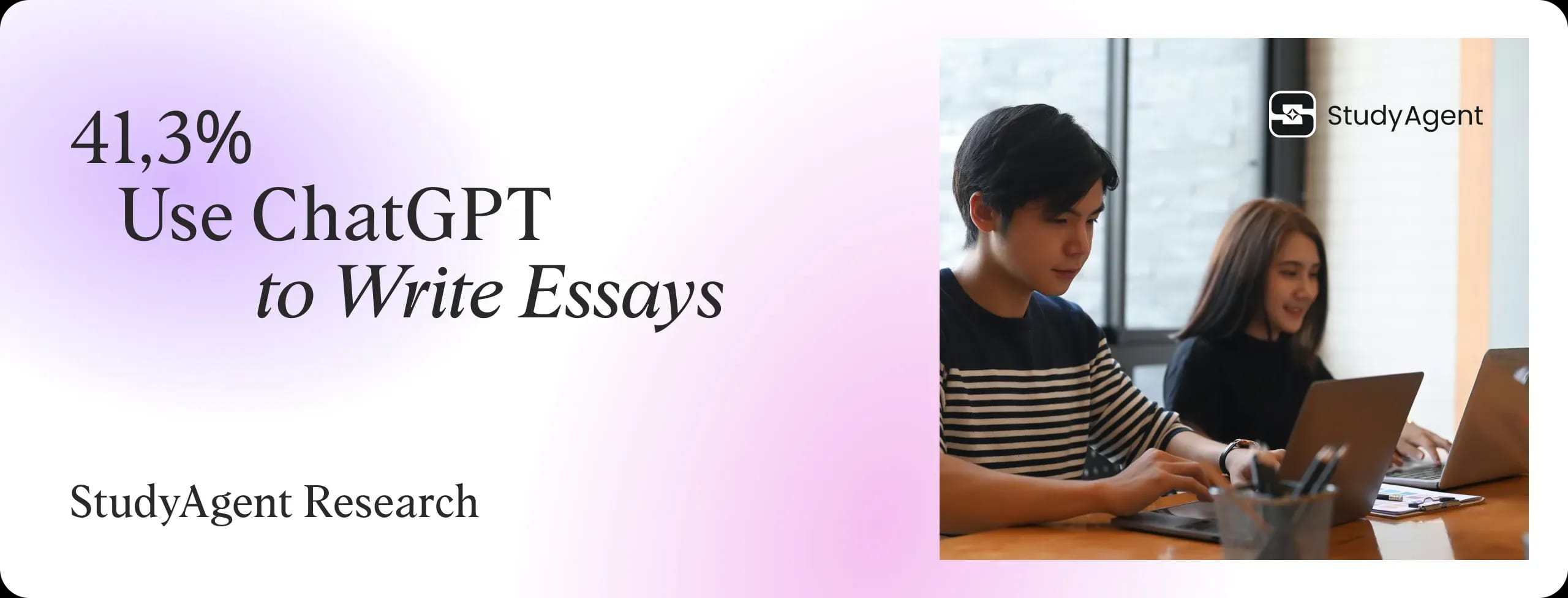MIT ChatGPT Brain Study: How ChatGPT Provokes ‘Cognitive Debt’



- Introduction: The Hidden Cognitive Costs of AI Writing
- Overview of the MIT Study
- Key Findings and Figures
- How Was the Study Conducted?
- Quality of Essays: What Did the Study Find?
- What Did the Study Find About Brain Activity?
- How It Directly Affects Critical Thinking?
- Why StudyAgent Provokes Critical Thinking?
- Conclusion: Our Insights
The adoption of AI tools like ChatGPT has transformed how students and researchers write, but at what cost to the brain? A recent MIT study reveals how ChatGPT affects student thinking in ways we're only beginning to understand. Researchers found that using ChatGPT for essay writing may increase cognitive debt and lessen critical thinking involvement, with participants showing up to 55% reduced brain connectivity compared to those writing unassisted, especially for younger users.
Introduction: The Hidden Cognitive Costs of AI Writing
Interestingly, 83% of ChatGPT users couldn't quote from essays they had just written a few minutes ago. So, what happens when you use ChatGPT to write an essay? The neurological evidence of LLM users is alarming:
- Weakened memory formation;
- Ongoing cognitive difficulties;
- Lack of initiative;
This comprehensive study offers the first deep look into the hidden cognitive costs on different behavioral levels of our increasing reliance on AI writing tools.
Fortunately, not all artificial intelligence writing tools weaken engagement and affect our neural connectivity. AI assistants like StudyAgent are designed to provoke thinking rather than replace it, guiding students to make decisions for themselves while supporting their learning process.
In this article, we will expose the key findings based on the study, the way it was conducted, the effects AI tools have on our brains, problem solving abilities, and provide an overview of the alternative AI tools allowing us to increase cognitive engagement and learning skills by developing our brains.
Overview of the MIT Study

An innovative MIT ChatGPT brain study, conducted by the MIT Media Lab in collaboration with BCI researchers, investigated how ChatGPT use affects cognitive engagement during learning. Let's break this study into pieces.
The Method
Participants wrote open-ended opinion essays both with and without ChatGPT. At the same time, the real-time brain activity was recorded using EEG-based brain-computer interfaces.
Key metric: Measurement of cognitive effort and engagement during the time participants wrote essays.
Findings

What do these numbers tell us?
- Neural connectivity. Brain-only group participants showed the strongest connectivity, in contrast to the llm group users, who had up to 55% reduced connectivity.
- Memory recall. 83% of ChatGPT users failed to quote from essays they had just written, compared to minimal difficulty in other groups.
- Essay ownership. ChatGPT group participants stated lower ownership and demonstrated less creativity and variability in writing.
- Cognitive engagement. Reliance on AI led to a 'cognitive offloading trap,' reducing the involvement of working memory, critical thinking, and independent synthesis of ideas.
This study provides critical neurological evidence on the hidden cognitive costs of ChatGPT use in education and emphasizes the importance of balanced AI integration in learning.
Key Findings and Figures
So, can using ChatGPT for essay writing cause the lowest brain engagement? On average, participants’ cognitive engagement dropped by 13%, reflected in reduced activity across brain regions tied to learning.
However, the most concerning was the decreased activation in the prefrontal cortex. It is the area responsible for critical thinking, planning, and synthesizing information. The behavioral data also showed a strong dependency on AI. For example, nearly 70% of participants accepted ChatGPT’s suggestions without questioning or editing them. This is the sign of a lack of critical thinking.
Interestingly, students reported feeling more productive with ChatGPT’s help, yet their writing showed less cognitive demand and depth, suggesting a gap between perceived efficiency and actual learning value.

As we can see from this chart, different types of writing support affected neural connectivity across three frequency bands: Alpha, Theta, and Delta.
- Brain only group (green): Students who wrote essays without external tools demonstrated the highest levels of brain connectivity, reflecting strong engagement and deep cognitive processing.
- Search engine group (blue): Connectivity dropped by about 34-48% compared to the first group. While still engaging in active thinking, participants offloaded some effort to search queries.
- ChatGPT group (red): Students who relied on the AI tool showed the lowest connectivity, with reductions of up to 55%. This indicates significantly reduced cognitive effort, suggesting that the AI was doing much of the work instead of the student’s brain.
To sum up, if students rely too much on LLMs the less their brains are engaged in the memory formation, creativity, and most importantly, critical thinking.
How Was the Study Conducted?
The MIT study on AI use and brain activity involved 54 participants who were divided into three groups to complete SAT style essay writing tasks. One group relied only on their own cognitive ability (‘brain only’), another could use Google search, while the third was given full access to ChatGPT. Each group wrote essays across three sessions while researchers carefully tracked their brain activity using EEG technology.
To test long-term effects, the study added a fourth crossover session with 18 participants. Here, prior ChatGPT users were required to write without any AI support, while the ‘brain only’ group was exposed to ChatGPT for the first time. This unique design highlighted how repeated ChatGPT use could leave lingering impacts on cognitive effort and memory, even after the tool was removed.
Finally, the researchers combined neurological findings with linguistic analysis. Essays were examined using Natural Language Processing (NLP) to identify stylistic and structural patterns, and then scored by both AI and human graders. This layered methodology allowed the team to measure not only productivity but also deeper outcomes, such as critical thinking, memory formation, and ownership of ideas.
Quality of Essays: What Did the Study Find?
The MIT ChatGPT brain study revealed that while using Chatgpt for essays made participants feel more productive, the actual quality of their writing suffered in critical ways. Essays produced with ChatGPT tended to be more homogeneous, with fewer original arguments and less depth of reasoning compared to the ‘brain only’ group.
As researchers discovered that AI users leaned heavily on factual recall and named entity references, up to 60% more than other groups, yet showed weaker synthesis and creativity.
Human and AI graders alike rated these essays as less original and less engaging, despite participants reporting a higher sense of efficiency. The findings highlight a key paradox: ChatGPT use may streamline the writing process, but it risks reducing the very qualities such as critical thinking, originality, and ownership.
What Did the Study Find About Brain Activity?
One of the most striking results of the MIT research was its neurological evidence. EEG recordings showed that participants’ brain connectivity dropped sharply when they relied on Chatgpt, with reductions of up to 55% in key frequency bands (alpha, theta, and delta). This meant less engagement of the prefrontal cortex. For learners, this matters deeply. How? The study suggests that over time, repeated reliance on AI may train the brain to offload effort instead of strengthening its own networks.
For students wondering how to study with ADHD, this study is very important. Tools that reduce engagement may provide short-term relief, but they can risk further weakening focus, memory, and critical thinking capacity. By contrast, structured strategies and supportive tools that keep the brain active, rather than replacing its work, are far more effective for long-term learning.
How It Directly Affects Critical Thinking?
Now let's talk about critical thinking. A study shows AI tools and LLM users have a significant increase in accelerating writing tasks, but this advantage comes with risks. When students relied on ChatGPT for essays, brain scans revealed a 13% drop in cognitive engagement and reduced activation in the prefrontal cortex.
This suggests that instead of strengthening reasoning, AI and critical thinking may be at odds because students can begin to outsource argumentation and evaluation skills to the tool.
It can lead to intellectual passivity, especially in areas that demand authentic thought, such as essay writing, debate preparation, and personal statements.
So, how does ChatGPT enhance critical thinking skills? Depending on how it is used. If treated as a guide rather than a replacement, it can provoke reflection and support idea refinement.
But how can AI be used in education? Integrating it after foundational skills are built ensures it supplements, not replaces, the student’s own critical thought process.
Why StudyAgent Provokes Critical Thinking?
Are all AI writing tools posing risks to developing brains? Not at all. Unlike traditional AI tools that often replace student effort, more advanced tools like StudyAgent AI writer are designed to actively provoke critical thinking.
Instead of handing students a finished essay, it engages them in the full writing process. For example, encouraging idea generation, structuring arguments and paragraphs, and refining drafts. So basically, the student participants are always needed at every stage.
In a nutshell, by guiding rather than substituting thought, the StudyAgent AI writer helps students build lasting cognitive abilities that are crucial for higher education and lifelong learning.
Conclusion: Our Insights
As the MIT ChatGPT brain study discovered, relying on LLMs can lower brain connectivity by up to 55% and weaken memory, showing the risks of outsourcing thought to AI. Luckily, not all tools carry the same cost. For example, the StudyAgent AI writer takes a different path. It is programmed to guide students through the full writing process, encouraging participation and provoking critical thinking instead of replacing it.
- AI can weaken engagement (55% lower neural connectivity and memory decline).
- Overreliance creates risks (productivity comes with less depth and creativity).
- Not all AI tools are the same (tools exist to promote active students' participation).
- The future of AI in education (effective tools should provoke critical thinking).
- Kosmyna, N., Hauptmann, E., Yuan, Y. T., Situ, J., Liao, X.-H., Beresnitzky, A. V., Braunstein, I., & Maes, P. (2025, June 10). Your Brain on ChatGPT: Accumulation of Cognitive Debt when Using an AI Assistant for Essay Writing Task. arXiv. https://arxiv.org/pdf/2506.08872v1
- Stox, W. (n.d.). ChatGPT’s impact on our brains according to an MIT study _ TIME. Scribd. https://www.scribd.com/document/897324064/ChatGPT-s-Impact-On-Our-Brains-According-to-an-MIT-Study-TIME
- Wei, M., MD JD. (2025, June 19). A new MIT study suggests relying on AI for writing reduces brain engagement. Psychology Today. https://www.psychologytoday.com/us/blog/urban-survival/202506/how-chatgpt-may-be-impacting-your-brain


